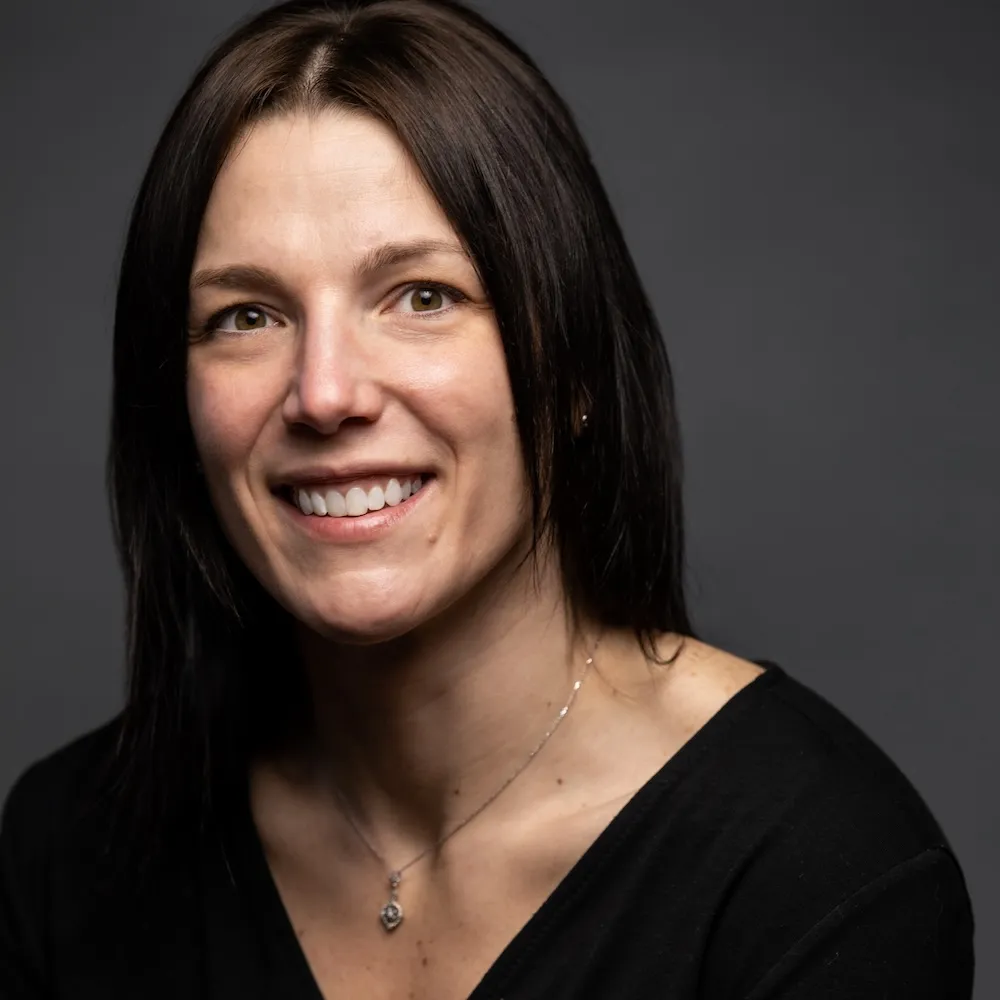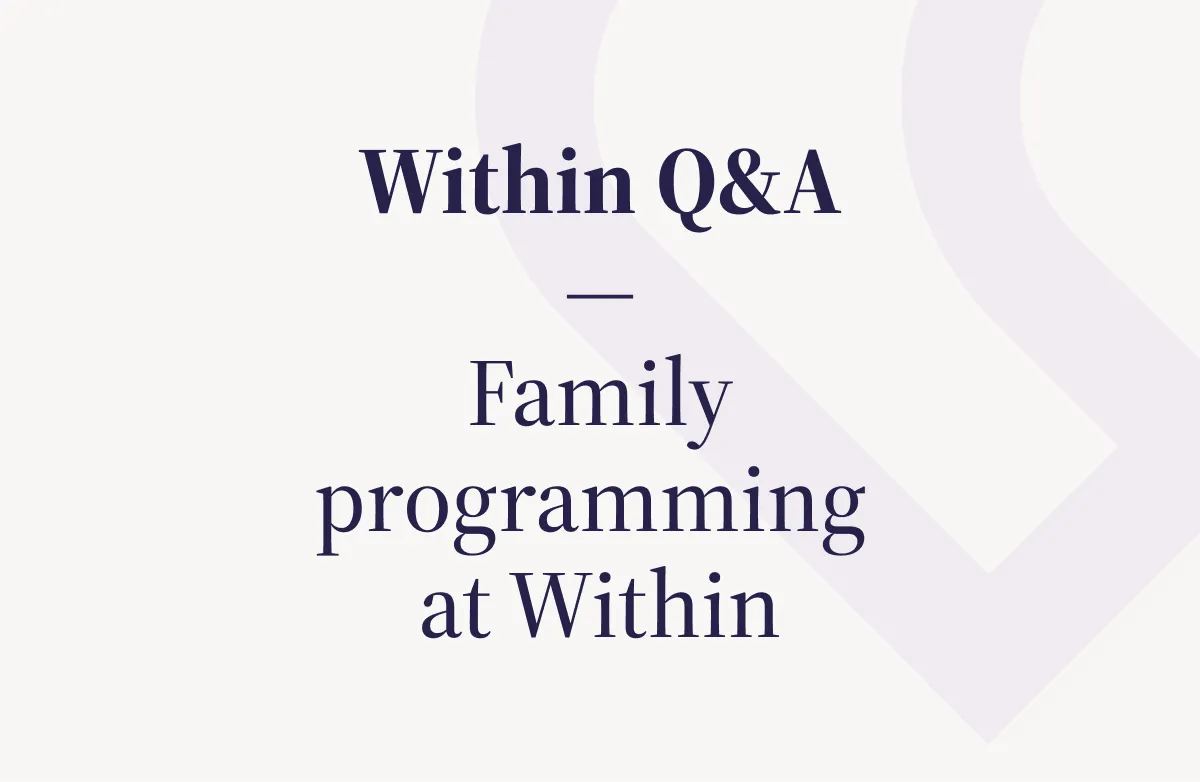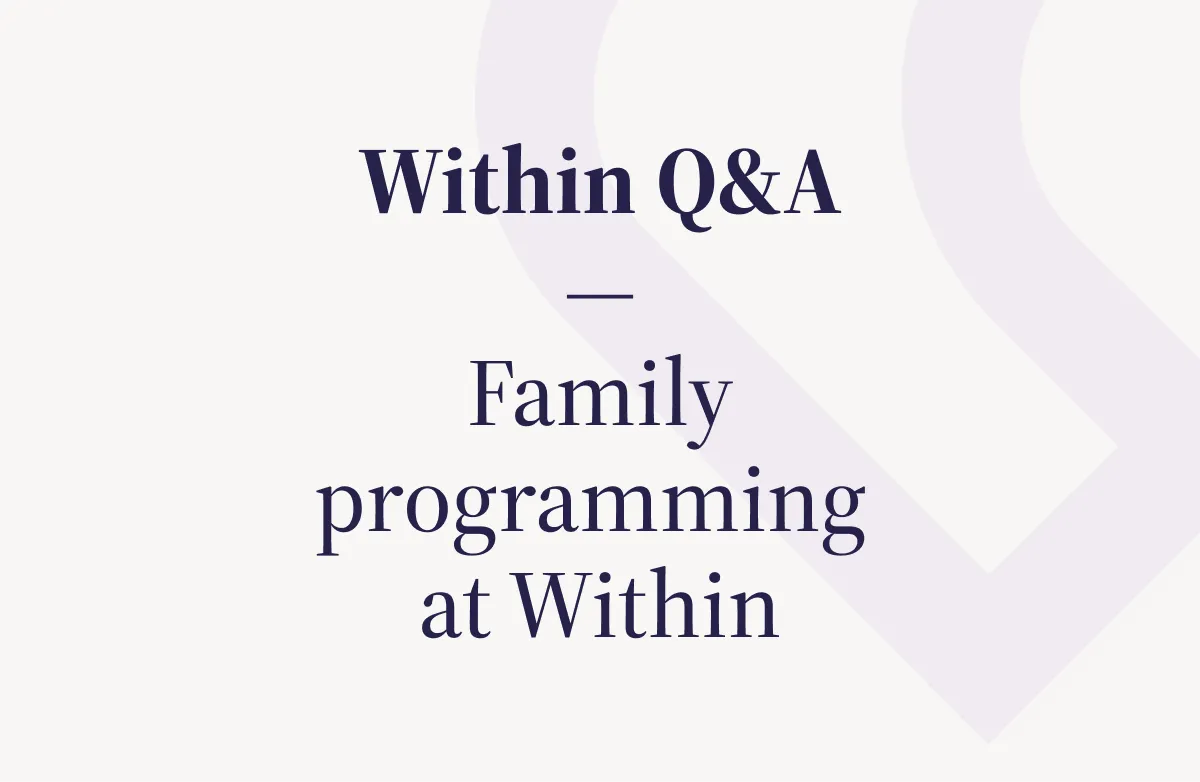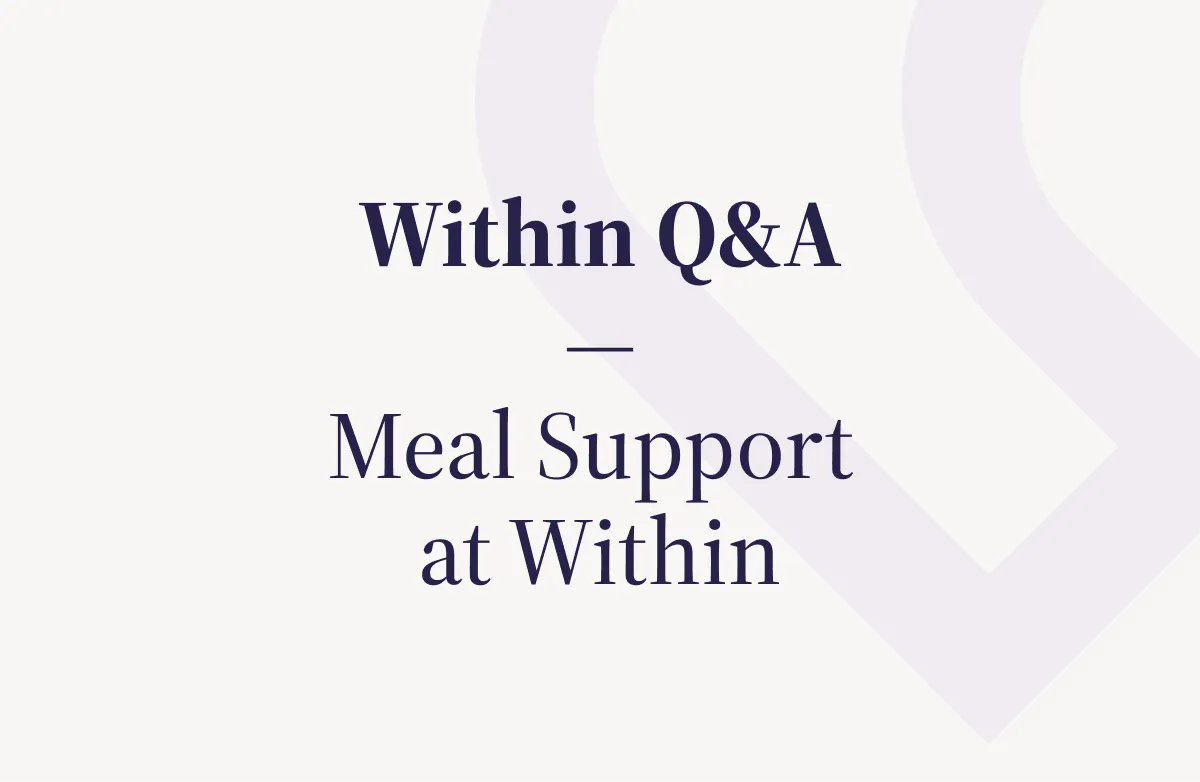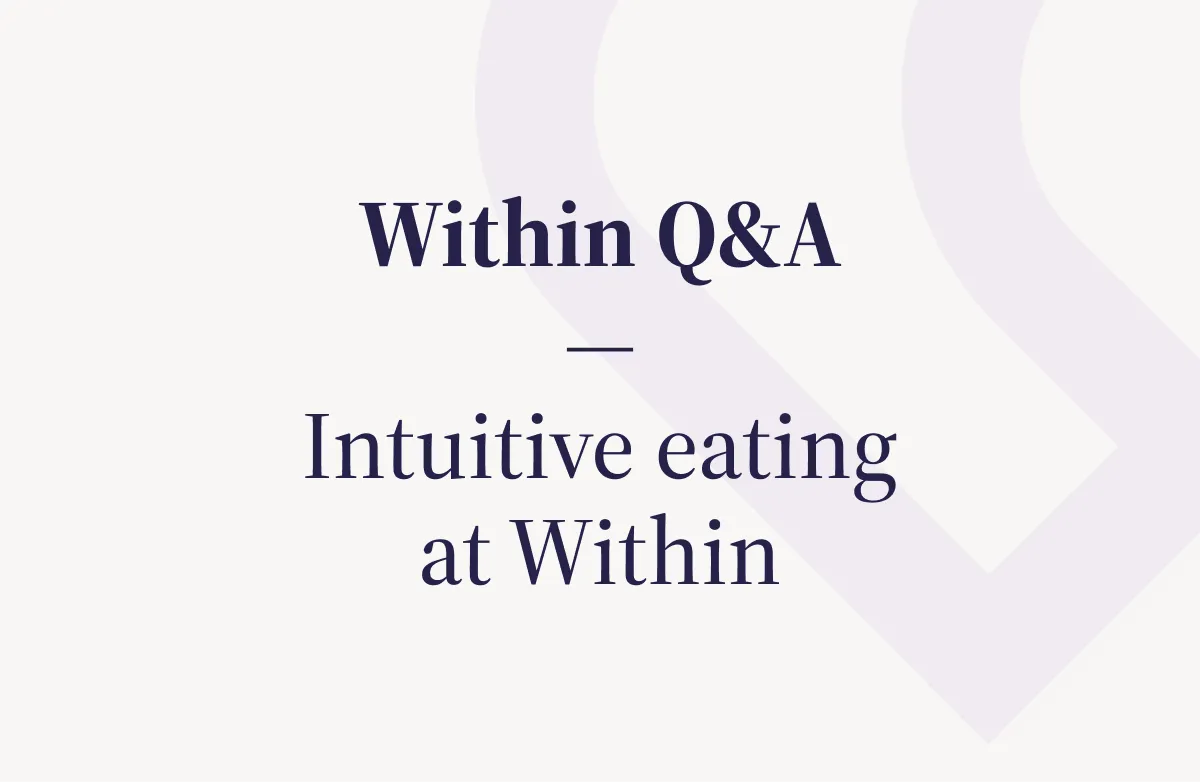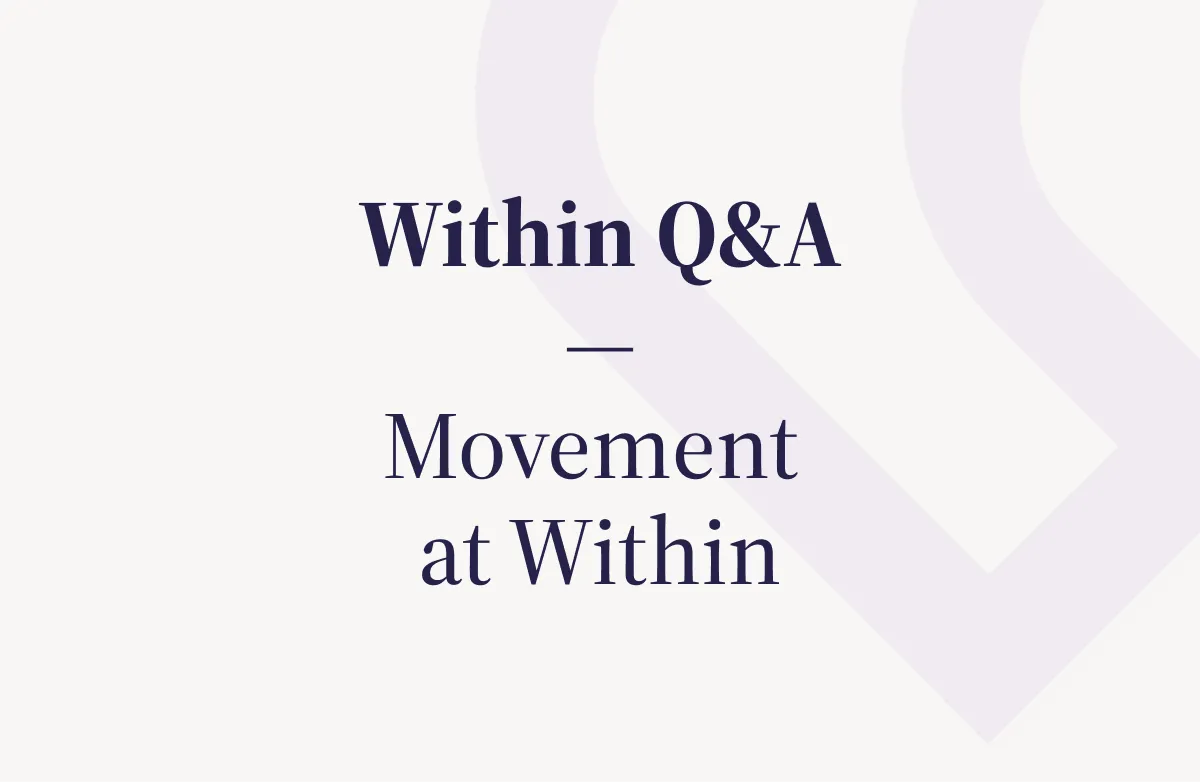How does Within incorporate family into treatment programming?
At Within, we prioritize family involvement from the start and offer more family services than any other treatment provider. Before the client connects with an admissions specialist, families are invited to our "Discover Within" group to meet with the clinical team, Director of Family Programming, and Program Manager. We encourage loved ones and family members to participate and learn even before admission.
Families stay connected throughout the admissions process and the entirety of treatment. They can join Programming for Loved Ones, which includes groups designed to help supporters build skills, gain confidence, and foster deeper connections. Family sessions and groups include family therapy, family coaching (with Clinical Leads, Registered Dietitians, and Registered Nurses), and family psychoeducation. Family members can also access an app for updates and to communicate with the treatment team.
We also involve families in discharge planning to ensure a smooth transition and share any safety plans.
At Within, we believe family support is crucial to the recovery process, and we’re committed to including them every step of the way.
Q. What are the benefits of involving family and loved ones in eating disorder treatment?
Involving family and loved ones in eating disorder treatment can significantly boost recovery. Research shows that family-based interventions can lead to recovery rates of over 80% for adolescents with anorexia.1
Families play a major role by providing emotional and practical support, such as helping with meals and creating a structured, safe environment. Their involvement also lowers the risk of relapse by helping to spot early warning signs and encouraging their loved one to stay in treatment.
Family therapy doesn’t just focus on recovery—it also strengthens communication, resolves conflicts, and builds empathy, helping to repair strained relationships. It helps families understand eating disorders more deeply, giving them the tools they need to support their loved ones in the long term.
Our approach at Within is rooted in emotion-focused family therapy (EFFT) and actively involves families in the recovery process, promoting a more holistic recovery and healthier family dynamics.
Studies also show that family involvement can reduce the likelihood of re-hospitalization by 50%.1 Engaging loved ones in the recovery journey creates lasting, positive changes for both the client and their family.
Q. How often do family members participate in therapy sessions/groups as part of a loved one's treatment program?
Families are invited to participate in various groups offered five days a week, providing daily ongoing connection. These groups are optional but highly encouraged as they provide valuable guidance and resources for supporters.
In addition to these group opportunities, individual family sessions typically occur once a week, and partnership meetings occur monthly to ensure continuous engagement and progress.
Outside of these formal connections, we encourage loved ones to reach out and communicate with the entire team at any time. Our goal is to ensure that families feel supported and involved throughout the treatment process, with open lines of communication every step of the way.
Q. What if a patient doesn’t have family/loved ones willing to be involved in their recovery?
We encourage clients to expand their definition of "family" to include any individual who can offer support throughout their recovery. If a client cannot identify a supportive person in their life, our team works closely with them to help develop meaningful connections within the community. This might include connecting with support groups, mentors, or other trusted individuals who can become a consistent source of encouragement.
Building these connections becomes an integral part of their personalized treatment plan, fostering a strong network of care.
Q. Are there support groups for family members to attend where they can learn about how to support their loved one in recovery?
At Within, we offer daily groups for loved ones, each designed to provide support and empowerment. Some groups focus on skill-building to strengthen the role of the supporter in the recovery process, while others offer valuable nutrition education. We also have a range of support groups, including one specifically for males supporting individuals in recovery and another for loved ones of those working on overcoming avoidant/restrictive food intake disorder (ARFID).
These groups are an essential part of fostering a strong, supportive environment for both clients and their families.

